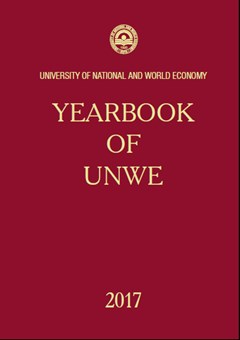Structural Transformation and Industrial Competitiveness of Bulgaria After 10 Years of EU Membership
Author: Paskal Zhelev
Abstract
After the global crisis it was realized that manufacturing should be assigned a major role for Europe to continue to be a global player. The European Commission has called on EU countries to step up their industrial policies and try to restore the central position of manufacturing for creating jobs and growth. In this context the aim of the paper is to look at the process of structural change in Bulgaria in the period after its EU accession. An attempt is made to explore whether the Bulgarian economy has managed to reindustrialize and improve its industrial competitiveness taking advantage of the alleged benefits of the full EU membership. The analysis has been made in comparison to another two similar countries. The results show that so far reindustrialization has not been achieved and, despite the slight improvement in the industrial competitiveness, in relative terms it is extremely unsatisfactory.
JEL: F63, L52

